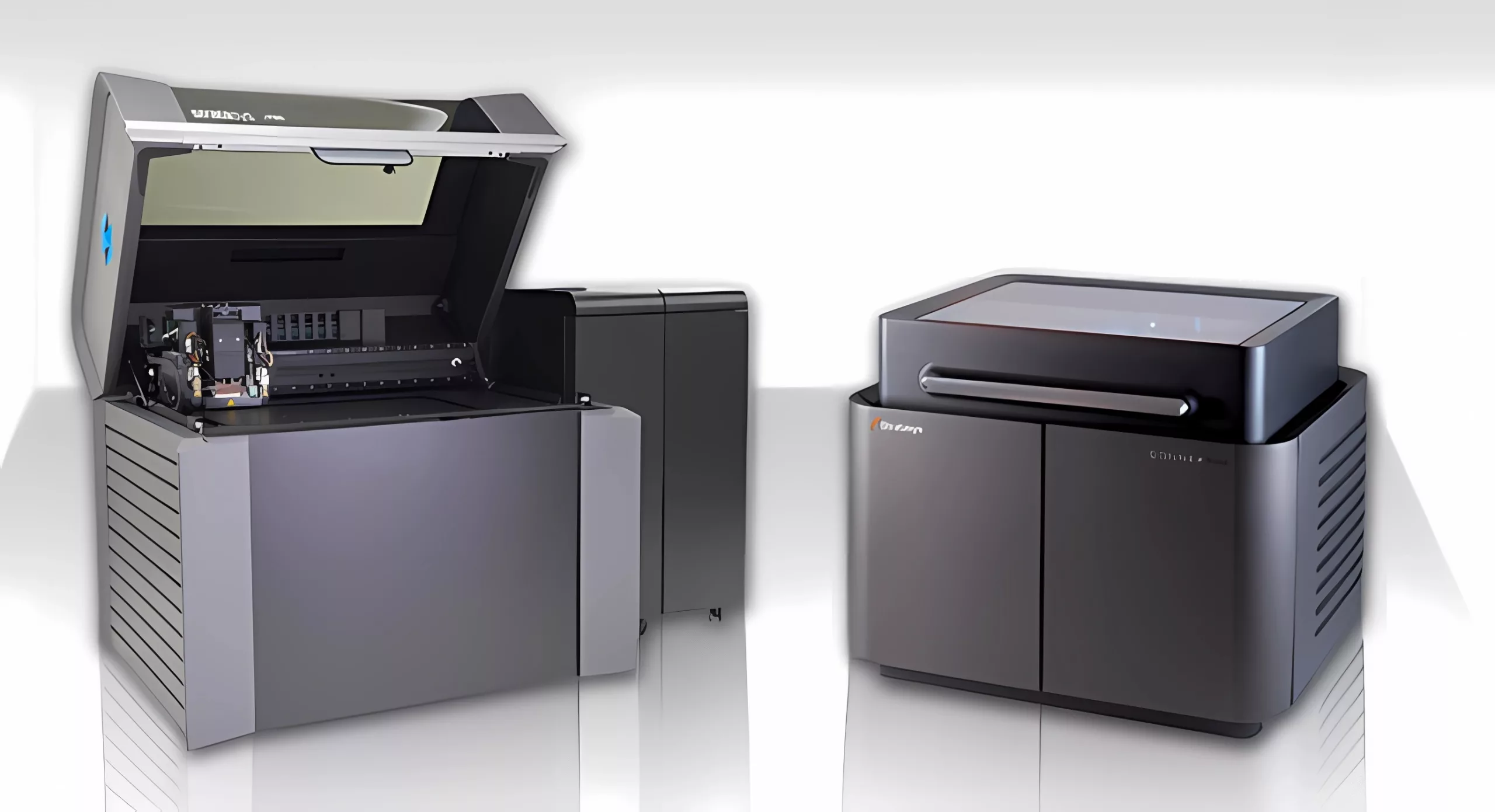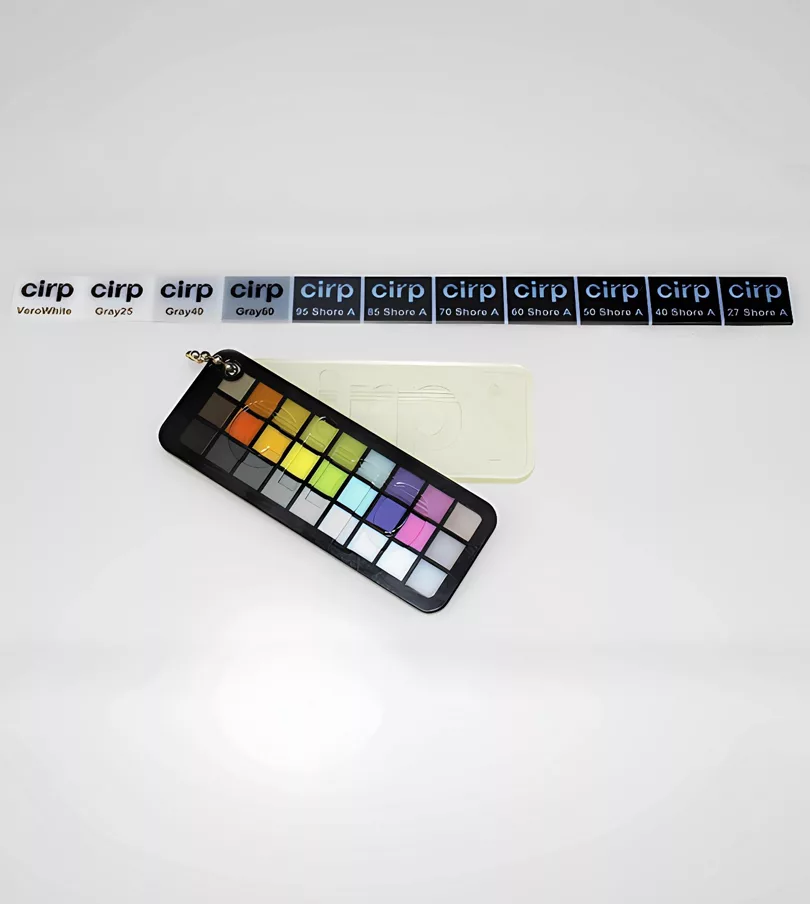Our Processes
PolyJet (PJM) -EN
Our Processes
- Selective Laser Sintering (SLS)
- Powder Bed Fusion (MJF/SAF/HSS)
- Stereolithography (SLA)
- PolyJet (PJM) -EN
- CAD, manufacturing-oriented building component design & reverse engineering
- Measurement technology
- Metal casting
- Selective laser melting (SLM)
- RapidTooling (RT)
- CNC Machining
- Model making (MB)
- Vacuum casting (VAC)
- Fused Deposition Molding (FDM/FFF)

With our PolyJet 3D printing process, you can create high-precision components. Both photopolymer resins and rubber materials can be used for manufacturing. The prototypes feature smooth and durable surfaces with extremely fine details and exceptional surface quality. Thanks to the high quality of the results and the flexibility of multi-material printing, you can replicate the visual, tactile, and functional properties of an unusually wide range of end products as accurately as possible.
3D printing is particularly suitable for design models, master models for subsequent processes such as silicone vacuum casting, fine/sand casting master models for casting resin tools, design verification, and initial samples for batch sizes of up to five parts.
Materialdaten

The VeroVivid product family gives all components and prototypes impressive color. The ability to simulate more than 500,000 colors and unlimited shades offers unique full-color capabilities for all types of prototypes.
Combining composite material with other Stratasys PolyJet materials, such as VeroWhite, VeroUltraClear, or the Agilus30 product family, opens up endless possibilities. Create colors in different degrees of hardness, simulate surfaces, create realistic packaging, or lifelike medical aids.
Agilus 30 is a PolyJet photopolymer with excellent tear resistance that can withstand repeated bending and twisting. It is suitable for manufacturing durable, highly flexible, high-precision components. Agilus 30 simulates the look, feel, and function of rubber and has a Shore A rating of 30 in clear or black. It is ideal for design validation. The components are particularly suitable for rubber-like products and medical models.
The FullCure® material family consists of several elastic and non-elastic resins. FullCure® 720 is suitable for standard applications and has excellent technical properties with transparent coloring (yellow tint). In addition, you can use FullCure® support material to create complex geometries, including overhangs and undercuts.
Mechanical properties
| Materialbezeichnung | Agilus30 | Vero-Materialien | Tango-Materialien | FullCure® 720 |
|---|---|---|---|---|
| Zugfestigkeit [MPa) | 2.4 – 3.1 ASTM D – 412 | 50 – 65 ASTM D – 638 – 03 | 1.8 – 5.0 ASTM D – 412 | 60.3 D – 638 |
| Bruchdehnung [%] | 220 – 270 ASTM D – 412 | 10 – 25 ASTM D – 638 – 05 | 45 – 55 ASTM D -412 | 15 – 25 D – 638 |
| E-Modul [MPa] | – | 2000 – 3000 ASTM D – 638 – 04 | – | 2870 D – 638 |
| Biegefestigkeit [MPa] | – | 60 – 110 ASTM D – 790 – 03 | – | 75.8 D – 790 |
| Biegemodul [MPa] | – | 1900 – 3200 ASTM D – 790 – 04 | – | 1718 D – 790 |
| Kerbschlagzähigkeit [J/m] | – | 20 – 30 ASTM D – 256 – 06 | – | 39.6 D – 256 |
| Wasserabsorption (%) | – | 1.1 – 2.2 ASTM D – 570 – 98 24h | – | – |
| Härte [Shore AJ | 30 – 35 ASTM D – 2240 | 83 – 86 ASTM Scale D | 60 – 77 ASTM D – 2240 | 83 ASTM Scale D |
| Dichte n. Polymerisation [g/cm’] | 1.14 – 1.15 ASTM D – 792 | 1.17 – 1.19 ASTM D – 792 | 1.14 – 1.17 ASTM D – 792 | – |